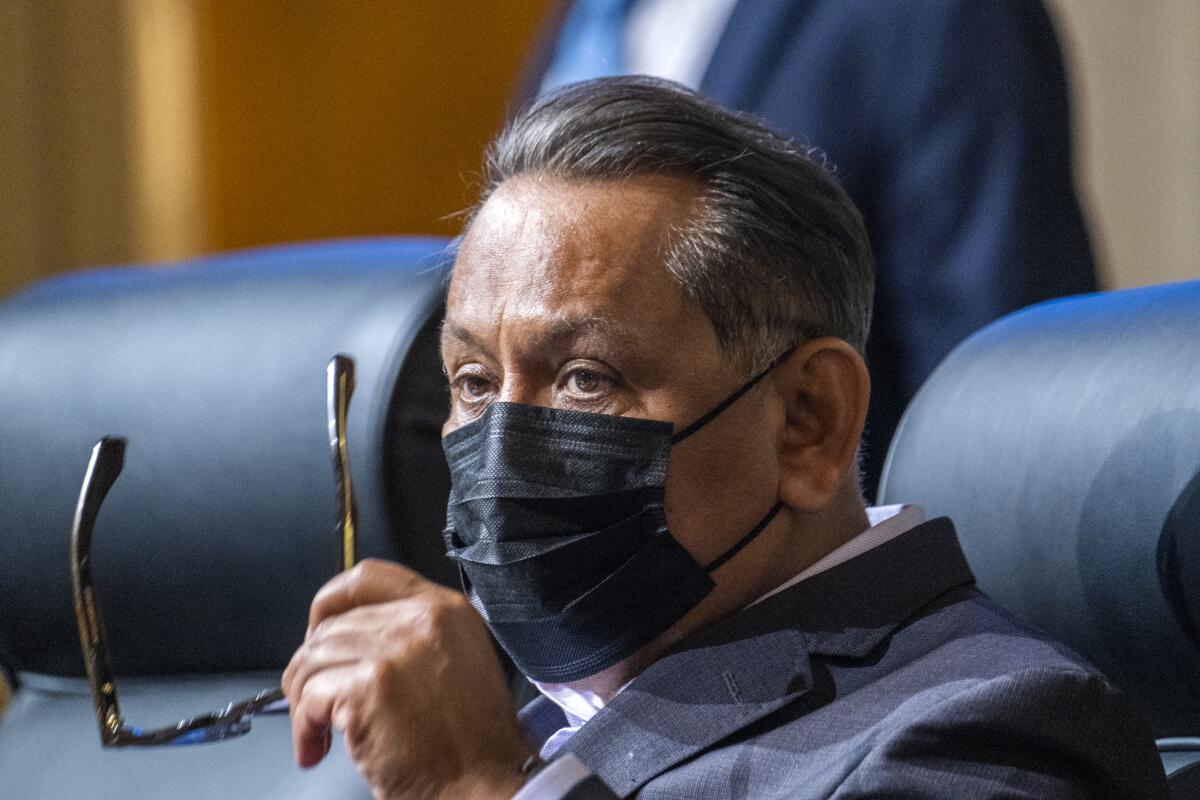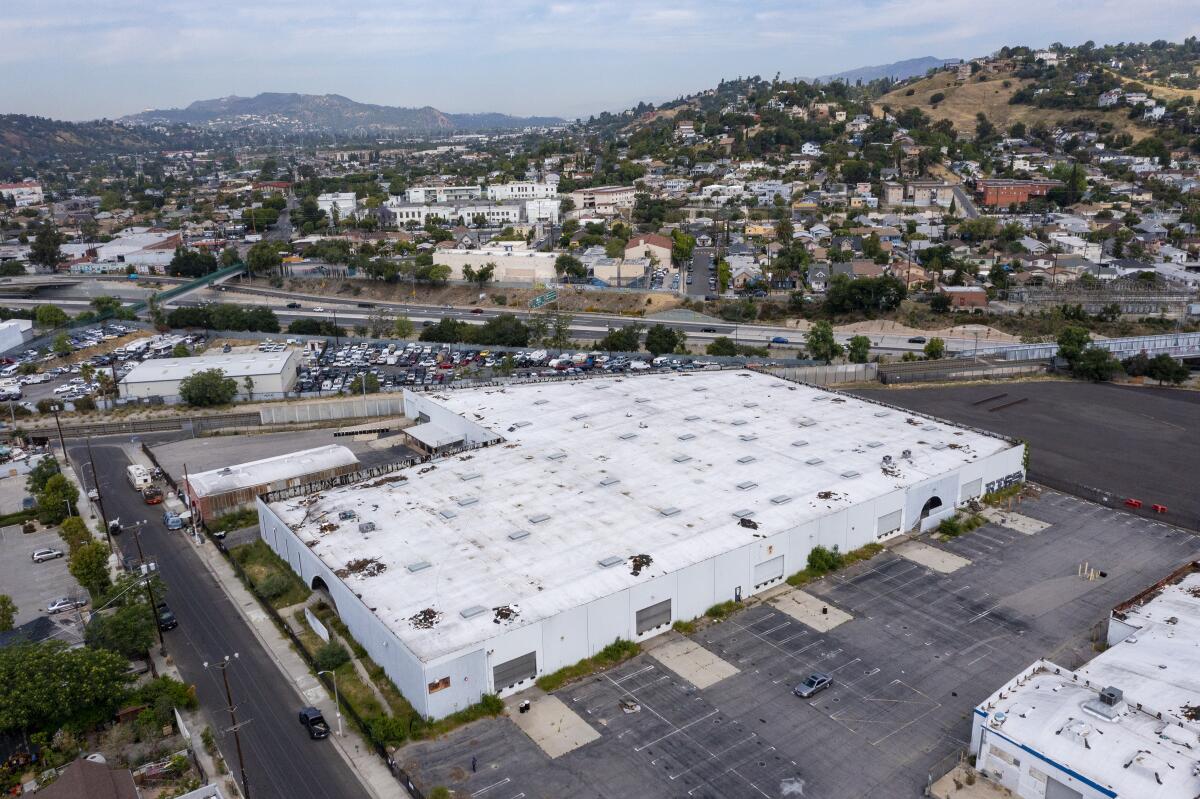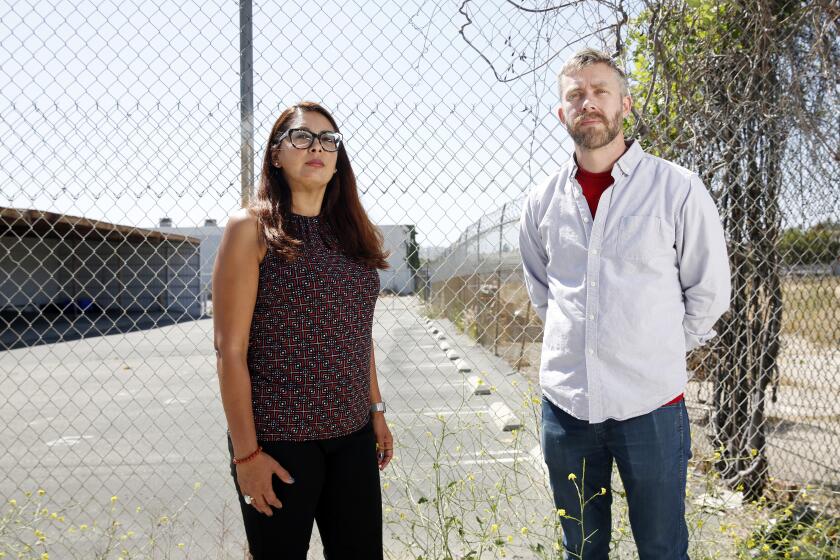City of L.A. to test for possible toxic waste near Lincoln Heights housing development

- Share via
In response to community outcry, the Los Angeles City Council has ordered that additional testing for potential toxic waste be performed outside the boundary of an embattled housing and retail development in the Lincoln Heights neighborhood.
In a unanimous vote Wednesday, the City Council directed the Bureau of Sanitation to test the soil, storm water and wastewater surrounding the the development site on Avenue 34. Testing has already been conducted within the project site, but residents have called for additional testing on property near their homes.
Councilmember Gil Cedillo who represents the area, proposed the action after community activists and media reports called to light a long-forgotten criminal case in which more than 250 barrels of toxic chemicals were illegally buried in the area where developers now plan to build a five-story apartment complex, retail space and an underground parking garage.
“With the site being located adjacent to a residential population and sensitive uses, such as an elementary school, there is an absolute need for us to act today,” wrote Cedillo, who is up for re-election.
State toxic substance regulators are being called to task for their handling of a long-forgotten dump site in L.A.’s Lincoln Heights neighborhood.
The offsite testing conducted by the city will not halt demolition of warehouses at the development site, a state-approved cleanup of the site, or the actual construction of the apartment complex.
Although Cedillo’s office credited a May report by The Times for “exposing the severity of toxic dumping and the potential public safety hazard,” the site’s troubled history was not news to Cedillo or the council.
Developers want to build 468 housing units in Lincoln Heights next to a former laundry site where toxic chemicals were used.
For the past several years, Lincoln Heights residents have opposed the project, for fear it would gentrify their mostly Latino and Asian working class neighborhood, and risk community exposure to contaminated soil. Testing at the property revealed levels of volatile organic compounds, or VOCs, that were more than 4,000 times higher than what is recommended for residential standards.
In December however, residents grew even more concerned when a community member discovered old news articles highlighting a 1984 case of illegal dumping. That same month, nonprofit news publication Capital and Main broke news of the community’s findings. A similar report by LA Taco followed in April.
In January, neighborhood activists sent an email to Cedillo’s office, raising the alarm about the illegal dumping and its omission from the state’s and developer’s plans to clean up the property. They have told councilmembers of their concerns at public meetings.
Opposition to the project crescendoed earlier this week when the Lincoln Heights Community Coalition filed a lawsuit against the city of Los Angeles as well as the state’s Department of Toxic Substances Control alleging that officials failed to investigate the 1980s case and approved an inadequate cleanup plan.
“Although I feel this could potentially be a step in the right direction,” said Michael Hayden, president of the community coalition, referring to the city’s new testing plans, “I also reject the suggestion in the motion that this is new information — it is not.”

In March, the state’s Department of Toxic Substances Control had approved the developer’s plan to clean up the land before construction.
However, experts and advocacy groups including California Communities Against Toxics and California Safe Schools joined residents in calling for more testing on and off site to ensure chemicals have not spread beyond its property lines and into nearby homes, businesses and a school.
The city appears poised to grant the community’s requests as city staff confirmed they are preparing to begin testing for VOCs around the property.
“We understand this is an urgent assignment from the City Council and will do our very best to fast track this project,” said Mas Dojiri, assistant general manager at Los Angeles Sanitation and Environment, which plans to collaborate with DTSC during its testing.
Cedillo had previously been a supporter of the Lincoln Heights housing project, leading a motion in October 2020 that granted its developers a $20-million tax-exempt bond from a joint-powers authority with the state, which was set up to fund “public benefit” projects, such as affordable housing.
The project developer, R Cap Avenue 34, plans to build 468 apartment units, with 66 set aside for very low-income residents.
Demolition crews this week began to tear down industrial warehouses that currently sit vacant on the contaminated property. The demolition and cleanup is expected to continue until June.









